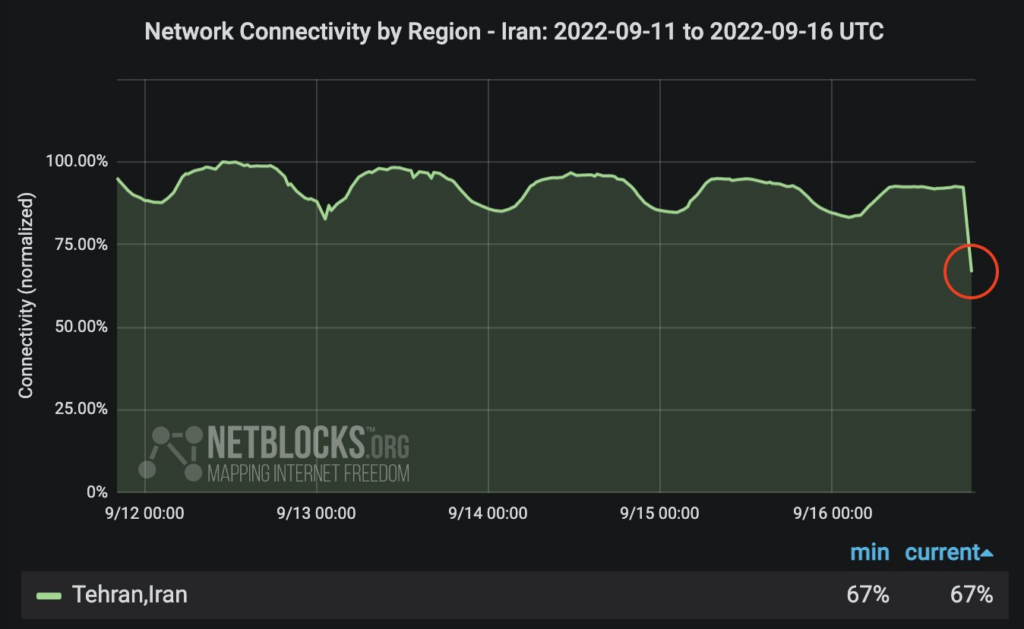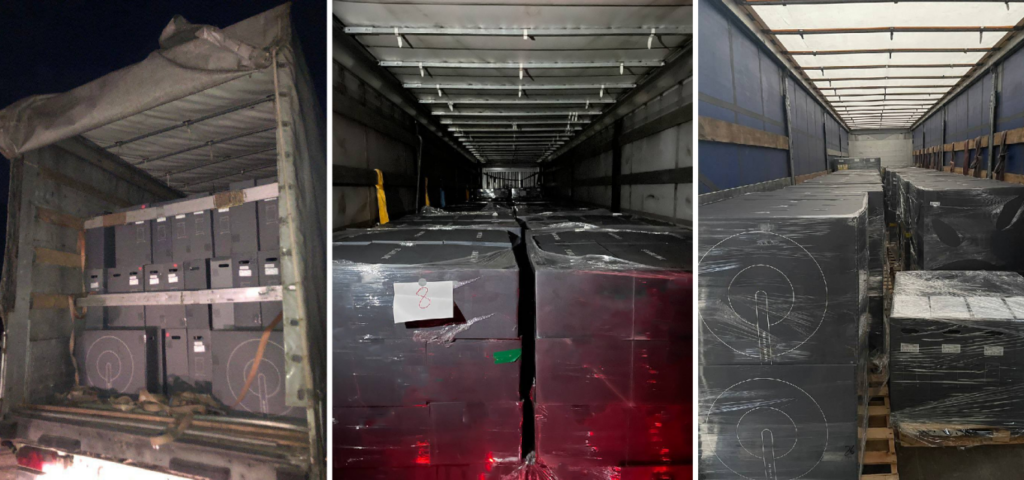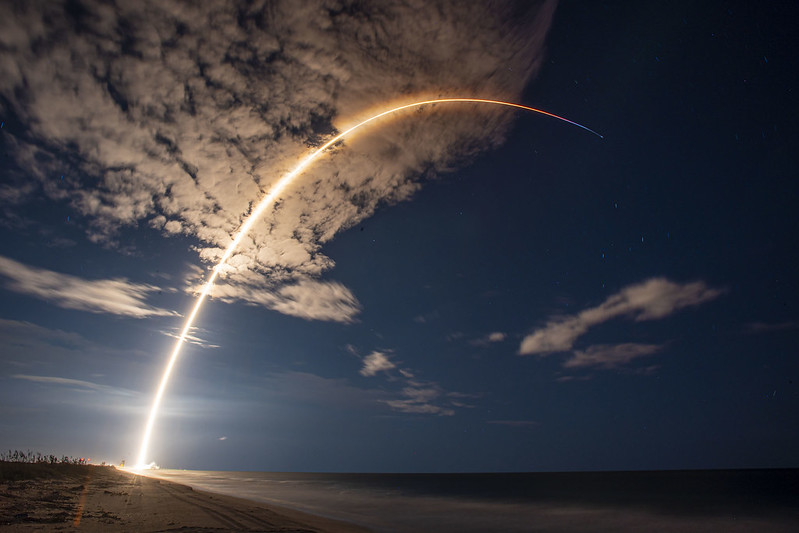Protests in Iran reached their 10th night and 50 cities over the weekend, following the death of Mahsa Amini in custody.
A digital curtain descends…
In response to anti-government protests, Tehran has throttled internet access and mobile networks and blocked WhatsApp and Instagram, popular Western services within the country. NetBlocks, Cloudflare, and OONI are documenting the digital disruptions.

…sidestepping the curtain? A week ago, Elon Musk tweeted that Starlink would seek an exemption to US sanctions to provide internet services in Iran:
Washington responds
A bipartisan group of US lawmakers, led by Reps. Claudia Tenney (R-NY) and Tom Malinowski (D-NJ), petitioned US Treasury Secretary Janet Yellen to provide Starlink with a license. “Treasury should quickly approve any licensing requests it receives from tech and internet companies, including Elon Musk’s Starlink,” Tenney said. “It’s our policy to stand with the Iranian people. We must do everything we can in this moment to make sure their voices are heard.”
On Friday, the US State Department said it issued a license authorizing the export “of certain services, software, and hardware related to communications to Iran.”
Technology constraints
At some point in the intervening days, SpaceX switched on Starlink in Iran.
But the space-based broadband service won’t work without terminals, which Iranians do not have. Moreover, Starlink requires ground stations within hundreds of miles of user terminals. SpaceX has not built any of those stations in Iran. Laser links may help alleviate ground constraints. Starlink V1.5 sats are fitted with inter-satellite links, which let constellations transmit data in-space and skirt the need for as many ground links.
Let’s talk logistics

In a Twitter thread on Sunday, Carnegie Senior Fellow Karim Sadjadpour recounted a conversation he had with Musk. Starlink requires terminals inside the country, “which I suspect the government will not support,” the SpaceX CEO said…“but if anyone can get terminals into Iran, they will work.”
The White House is reportedly receptive to the idea of getting terminals into Iranians’ hands. Still, the logistical barriers are numerous.
- “It will cost many millions of dollars to setup [sic] and sustain thousands of Starlink terminals to Iran,” Sadjadpour noted.
- Moreover, SpaceX and Washington would need to find overland routes to smuggle in Starlink kits.
There is modern precedent for such mobilization. The US and SpaceX have shipped 15,000+ Starlink terminals to Ukraine. And Ukrainians have downloaded the Starlink mobile app in droves.
Comparatively speaking, the Ukrainian Starlink mobilization was less of an uphill struggle. Hardware flowed through eastern Europe and made its way throughout Ukraine with the help of a friendly government in Kyiv. Traveling through Poland is an easier proposition than moving overland through Iraq or nearby countries.
Payload takeaway
Products like Starlink could serve as an antidote to the splinternet. And for decades, satellite phones have helped leaders maintain an open line of communication during war or natural disasters. In theory, Starlink could be a 21st century, space-based version of the Voice of America broadcasts beamed over airwaves into authoritarian countries for decades.
But getting this hardware into the right hands is no overnight process nor cakewalk. Plus, adversaries can jam satellite communications, or worse, geolocate, target, and take out terminal users. Finally, dual-use or counter-censorship applications of LEO megaconstellations could open commercial space assets up to electromagnetic warfare or kinetic attacks.





